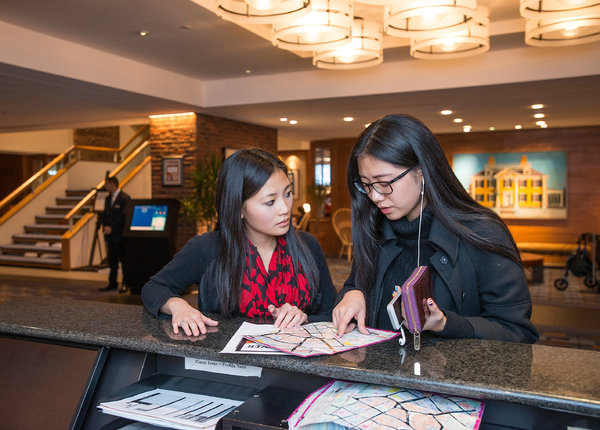 Mandarin television channels. Congee rice porridges. Smoking rooms.
Mandarin television channels. Congee rice porridges. Smoking rooms.
China?has become the biggest travel spender in the world, and hotels are taking notice. Across Europe and America, back-office planners and front desk clerks are learning Chinese customs to attract the new travelers and keep them returning.
The market is large, and growing.?China?s economy included $102 billion spent on travel abroad in 2012, according to the United Nations World Tourism Organization. Rising incomes, combined with a relaxation of foreign travel restrictions and the sheer number of citizens, have fueled the Chinese growth.
Scott Taber, a vice president at Four Seasons Hotels and Resorts, said his company was updating its employee training and guest offerings to meet the 76 percent increase in travelers from mainland China over the previous year. Bellmen, reception clerks and telephone operators are being trained to pronounce Chinese names and offer Chinese newspapers, translated welcome materials and green tea in rooms at hotels in Paris, London, Los Angeles and other cities.
?We operate six hotels in mainland China and have learned cultural expectations and preferences from our experience with guests there,? Mr. Taber said. The Medallia company, which created the customer feedback system for Four Seasons, has translated it into Mandarin so Chinese guests could provide feedback worldwide.
At a minimum, hotels that hope to attract and retain Chinese business teach their front desk staff and reservations agents basic cultural information. Guests from China are not assigned to rooms that include the number four, which is considered unlucky because it sounds like the word for death. Chinese business practices and management hierarchy influence room assignments, so managers need to be assigned to a higher floor than their team, or given a higher room number.
Some hotel chains formalize these amenities and services under names like JW Marriott?s Li Yu, meaning ?To Serve with Courtesy.? As part of this program, The JW Marriott London Grosvenor House staffs a Chinese welcome desk for group arrivals, offers Chinese-labeled bathroom products and supplies a Chinese do-not-disturb sign.
The Hilton Worldwide website lists hotels where its Huanying or ?welcome? program is offered, including 19 in Europe and 29 in America. Guests of Conrad Hotels and Resorts can use the Conrad Concierge mobile app to choose Chinese television channels, mini-bar foods and other amenities, in Mandarin, on their mobile phone before they arrive.
Sales and reservation departments are also adapting. At the Waldorf-Astoria New York, Robert Armstrong, the sales manager, quotes all-inclusive pricing, with taxes and breakfast, to Chinese guests who ask about reservations, because they are accustomed to that type of pricing in China. He also asks which guests need to stay on a smoking floor. Chinese business groups often travel together, so the staff greets them at the entrance when they arrive.
Click here to read more.

